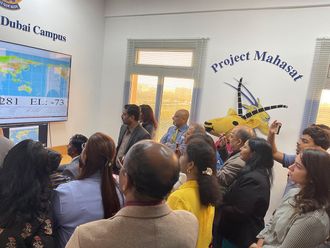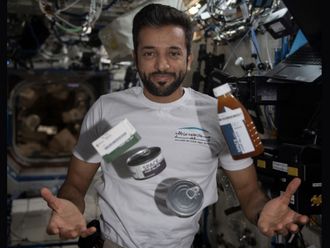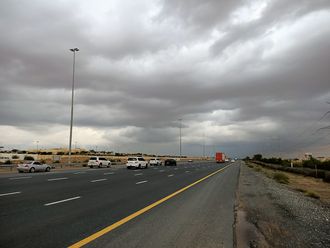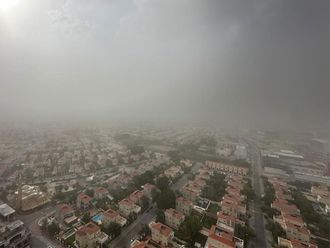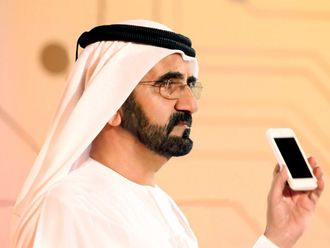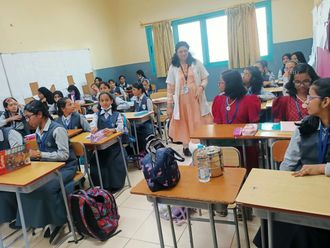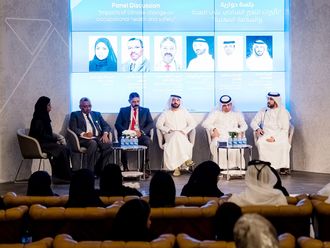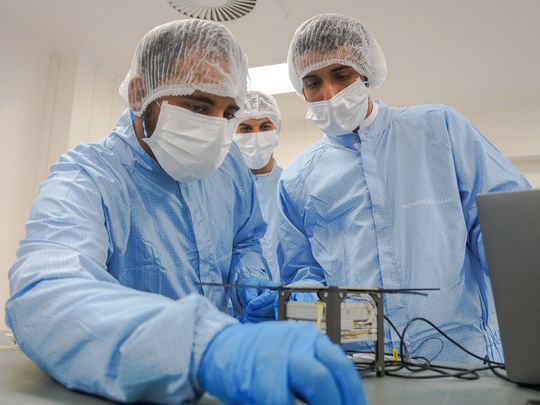
Dubai: University students in the UAE from various academic disciplines have started work on an Earth-observation satellite set to be launched by the end of 2024.
The Mohammed Bin Rashid Space Centre (MBRSC), in collaboration with the Higher Colleges of Technology (HCT), on Monday announced officially commencing work on the HCT-SAT 1 project, the institution’s inaugural student-led space mission.
The Earth-observation CubeSat project, with a unit size of 1U (10cm x 10cm x 10cm) is being developed by HCT students under the guidance of MBRSC engineers.
The HCT students, from a range of academic disciplines, are currently working within the laboratories of the MBRSC, initiating the development of HCT-SAT 1. This collaboration involves the Centre’s engineers providing knowledge transfer and mentorship to the students across all critical phases of the satellite’s lifecycle, including design, development, assembly, testing, and operational management.
The partnership between MBRSC and HCT encompasses not only the launch of the payload, but also an extensive educational experience, providing both students and faculty members with expert training, and delivering support in the CubeSat curriculum.
Interdisciplinary team
It will see 34 male and female HCT students across various engineering disciplines, including aviation sciences, airframe design, and electrical engineering, together with Applied Media students undertaking marketing aspects, work as a cohesive interdisciplinary team.
MBRSC also released videos showing the students’ work at its labs.
Ahmed Fahed Al Hamiri of the Mechanical Team said: “In the HCT-SAT 1 mission, our role includes developing the satellite’s structure. This involves designing it, conducting pre- and post-manufacturing tests, and then sending it to MBRSC.”
Saif Khaled Ali of the Main Payload Team said: “We perform tests on the primary payload which is the camera, to assess energy consumption and thermal characteristics.”
Khouloud Mubarak of the Electrical Power Subsystem Team, said: “Our primary responsibility involves developing the electrical systems within the CubeSat that will supply energy to the satellite using solar panels and a battery.”
Meanwhile, Mariam Salem Al Yousufi of the Telecommunications Team, said: “I am involved in developing the communication system of HCT-Sat 1 which plays a crucial role in ensuring communication between the satellite and the ground station.”
Future pioneers
Salem Humaid Al Marri, director-general og MBRSC, said: “By involving students in such high-calibre projects, we are not just educating; we are inspiring a new generation to dream big and contribute to the UAE’s ambitious space exploration goals. We are confident that this hands-on experience will equip our students with the skills and knowledge required to propel the UAE National Space Programme to new heights.”
Dr Faisal Alayyan, President and CEO, HCT, said: “This initiative is a pivotal outcome of the partnership, designed to equip HCT students with advanced knowledge in space sciences. This collaboration underscores the importance of space research in driving human progress while elevating awareness of the UAE’s strategic advancements and accomplishments in space exploration. It is a critical component of the nation’s vision to achieve a leading role in the highly competitive global space industry.”



